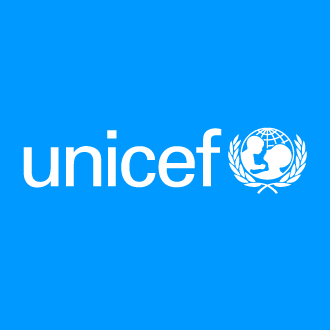The United Nations Children’s Fund (UNICEF) has urged the governments of Jigawa, Kano, and Katsina to increase their funding, allocation, and expenditure on basic education to address the barriers that prevent children from accessing quality education in these three states.
During a press conference for the 2025 International Day of Education (IDE) held at BON Hotel, Mr. Rahama Farah, the Chief of UNICEF’s Kano Field Office, emphasized that education is a fundamental human right and a crucial driver of societal development.
The Kano UNICEF chief highlighted the need for the states to tackle the challenges related to educational access by implementing initiatives that ensure equitable access to education for out-of-school children (OOSC).
He stated, “It is therefore important for duty bearers and right holders to take action to overcome the barriers that hinder children from obtaining quality basic education.”
According to him “On this day 24th, January 2025 when the global community is celebrating the International Day of Education, UNICEF calls on the Governments of Kano, Jigawa and Katsina to recruit more qualified teachers to fill existing gaps in the basic and post-basic education sector and strengthen the newly established Jigawa State Tsangaya Education Board to effectively implement its mandate”.
He noted that the UN General Assembly in December 2018 declared January 24 as the International Day of Education, with the day first celebrated in 2019, since then, it has served as an advocacy moment for education, providing annually, a platform for a global call to action, emphasizing education’s role in fostering a well-informed, inclusive, and peaceful society.
“On the 2025 IDE, this media briefing is organized to leverage this advocacy moment of the IDE to highlight the significance of education and its role in fostering a well-informed, inclusive, and peaceful society. As you may be aware, the theme for the 2025 International Day of Education is, AI and Education: Preserving Human Agency in a World of Automation”.
Mr Farah maintained that “our conversation today is not focused entirely on the 2025 theme; we will talk about the state of basic education in the states supported by the UNICEF Kano Field Office, namely, Kano, Jigawa and Katsina, including the emerging, disruptive impact of Climate Change on learning”.
ALSO READ: Oyo Speaker commiserates with Gov Makinde over brother’s death
He disclosed that “there are currently about 10.2 million children at the primary level are out of school in Nigeria, 16 per cent of them are from Kano, Jigawa and Katsina states, according to MICS 2021”.
“Close to one million children are out of school in Kano state( 989,234); a total of 337,861 school children are in Jigawa, while Katsina state with 536,112 out of school children according to MICS 2021, 32% of primary school going age children are out of school in Kano state”.
The UNICEF official said “Unfortunately, budgetary appropriations to the education sector across Kano, Jigawa and Katsina have not been matched with actual release and spending of appropriated funds and this needs to be addressed”
“Nigeria spends only 1.2 % of GDP on education, while Sustainable Development Goal (SDG)4 recommends four to six percent of GDP be spent on Education. Across the states of Kano, Jigawa and Katsina, the UNESCO benchmark is being met and exceeded when it comes to appropriation.
UNICEF expresses appreciation to our partners the European Union for their partnership on the Education and Youth Empowerment Education (EYE) Programme in Kano, Jigawa and Sokoto States. UNICEF further expresses appreciation to the Foreign Commonwealth and Development Office for the partnership on the CRIBS project in Kano and Jigawa states.
READ MORE FROM: NIGERIAN TRIBUNE









